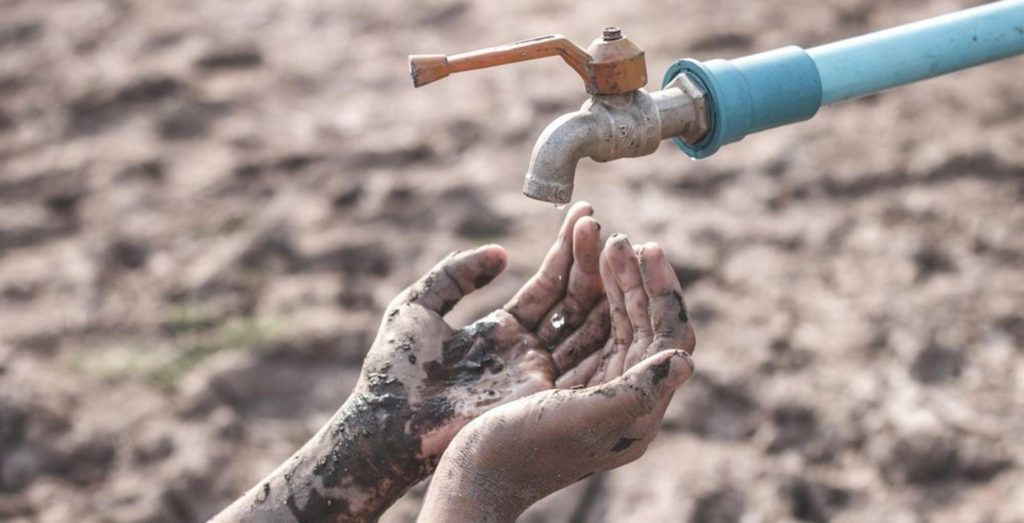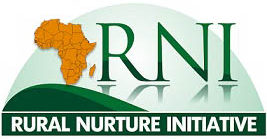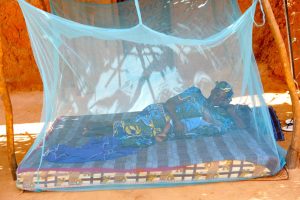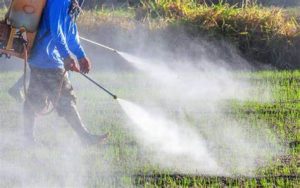Written by: Adesokan Ifeoluwa

Photo credit: https://planet.outlookindia.com/
Introduction
Nigeria, with its population of over 200 million people, faces various challenges related to water availability and quality. The country is plagued by poor water infrastructure and maintenance, insufficient resources to provide clean water to its citizens, particularly those living in rural areas. The water challenge in rural communities in Nigeria is a significant issue that needs to be addressed urgently. According to the World Health Organization (WHO), approximately 60 million people in Nigeria lack access to safe drinking water, with most of them residing in rural areas. In rural areas, 39% of households lack access to at least basic water supply, while only half have access to improved sanitation and almost a third (29%) practice open defecation – a fraction that has marginally changed since 1990 (WHO 2021).
This is a significant concern as access to clean water is essential for human survival and development. Inadequate access to clean water can lead to various waterborne diseases, such as cholera, typhoid, and diarrhea. These diseases can be life-threatening, especially for vulnerable groups such as children, pregnant women, and the elderly. The water challenge in rural communities in Nigeria can be attributed to various factors, including inadequate infrastructure and maintenance, climate change, and poor governance. Many rural communities lack proper water supply systems, which means that residents have to rely on contaminated water sources such as rivers, ponds, and open wells. Inadequate sanitation facilities also contribute to the contamination of water sources, as human and animal waste can easily seep into the water.
Climate change has also contributed to the water challenge in Nigeria. The country is experiencing longer periods of drought, which means that water sources are becoming scarcer. This has led to conflicts between communities over access to water sources, as well as increased reliance on contaminated water sources. In addition, poor governance and corruption have also played a significant role in exacerbating the water challenge in rural areas . Funds meant for the development of water infrastructure and provision of clean water have been misappropriated, leading to inadequate water supply systems and a lack of access to clean water for rural communities.
The water challenge in rural communities in Nigeria has significant and wide-ranging effects on various aspects of community life, including health, sanitation, hygiene, economy, environment, social dynamics, and migration. Addressing the water challenge and ensuring access to safe and clean water is essential for improving the well-being and livelihoods of rural communities in Nigeria.
Efforts Made So Far
Several efforts have been made by Government and Non-Governmental Organizations to address water challenges faced by rural communities. Rural Nurture Initiative in a bid to provide clean water to the rural dwellers of Agele Community in Ibarapa East LGA of Oyo State executed the safe rural water project. The water project met the felt needs of the community as it provided access to a clean source of water. A key learning from the water project at Agele community was the bottom-up approach adopted in the project design and implementation which promoted local participation and ownership of the water project by the community dwellers.
Conclusion
In conclusion, the water challenge in rural communities in Nigeria is a significant issue that requires urgent attention. The government needs to prioritize the development of water infrastructure in rural areas, as well as implement strict regulations to protect water sources from pollution. Furthermore, there is a need for increased awareness and education among rural communities to promote proper sanitation practices and the importance of access to clean water. Additionally, collaborations between government, non-governmental organizations, private sector, and local communities, community participation in water management initiatives are crucial to developing and implementing effective solutions to water challenges in rural communities in Nigeria.
Source:
World Bank, (2021). Nigeria: Ensuring Water, Sanitation and Hygiene for All. Available on: https://www.worldbank.org/en/news/feature/2021/05/26/nigeria-ensuring-water-sanitation-and-hygiene-for-all



